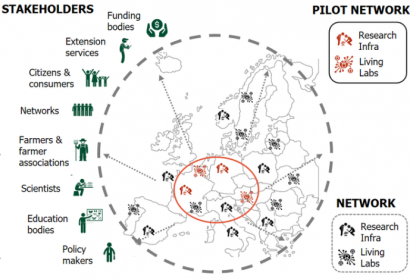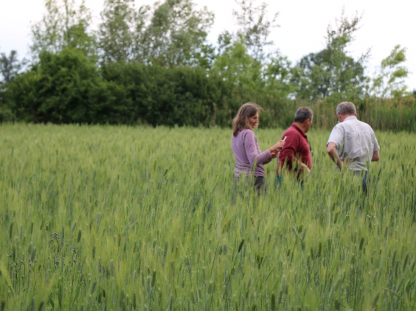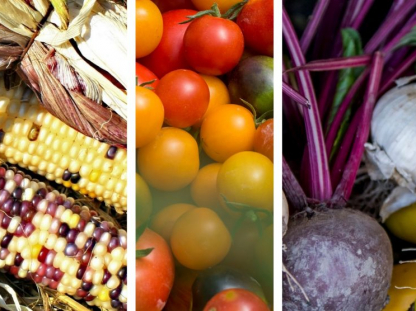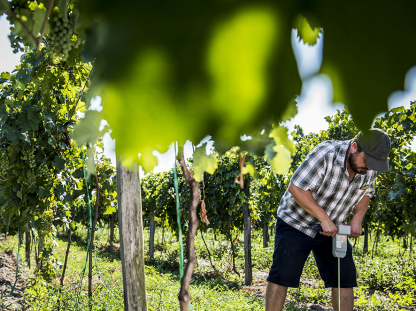
Funding: Horizon 2020 Framework Programme for Research and Innovation, European Union
Coordinator: French National Research Institute for Agriculture, Food and the Environment , Institut national de recherche pour l'agriculture, l'alimentation et l'environnement (INRAE), France
Time period: November 2020 - October 2023
Consortium partners: The ALL-Ready project will bring together a total of 13 partners from eight European countries and Canada.
Preparation of a European network of agro-ecological living laboratories and research infrastructures
Today, our agricultural systems face multiple challenges, including climate change, loss of biodiversity, loss of natural resources, and the deterioration of soil and water quality. Both the international and EU communities consider agroecology a suitable alternative to address these challenges. Agroecology, defined by the FAO through ten principles, means a better understanding of ecosystems, and the use of this knowledge to design more sustainable farming practices and systems. Agroecology can be the basis for a farming system that is both more resilient and more closely linked to society, and that delivers sufficient quantities of safe, nutritious and affordable food, while respecting the planet’s borders and better rewarding farmers.
One of the fundamental assumptions of the European Commission, which underpins the European Partnership on AgroEcology provisionally entitled “Accelerating farming systems transition: agroecology living labs and research infrastructures”, starting in 2023, is that open innovation arrangements (OIAs), in particular living laboratories (LLs) and research infrastructures (RIs), are tools which can make a significant contribution to boosting agro-ecology in Europe. Building on this, the main goal of the ALL-Ready project is to prepare the framework for a future European network of agro-ecological living laboratories (LLs) and research infrastructures (the so-called “AgroEcoLLNet”) that will enable the transition to agroecology across Europe. Through its results, the project will establish the preconditions and activities of the future network. In addition, it relies on participatory, real-life experimentation, and so itself embraces a living laboratory approach.
ALL-Ready consists of three stages:
-
Preparatory phase: the vision and the mission of the future network will be defined, as well as the inclusion criteria for living laboratories and research infrastructures in the network.
-
Second phase: prepares the various preconditions and activities of the future network (sustainability, including funding, governance, capacity building, data and knowledge management), which will be developed and tested in frame of a small-scale pilot network.
-
Final phase: One of the ultimate results of the project will be a tested implementation plan for the future network launched in 2023 which will constitute the implementation framework within the Horizon Europe program.
The main mission of the ALL-Ready project is to prepare and test a European network of agro-ecological living laboratories and research infrastructures that will enable the transition to agroecology across Europe. Its objectives are:The goals of All-ready are:









